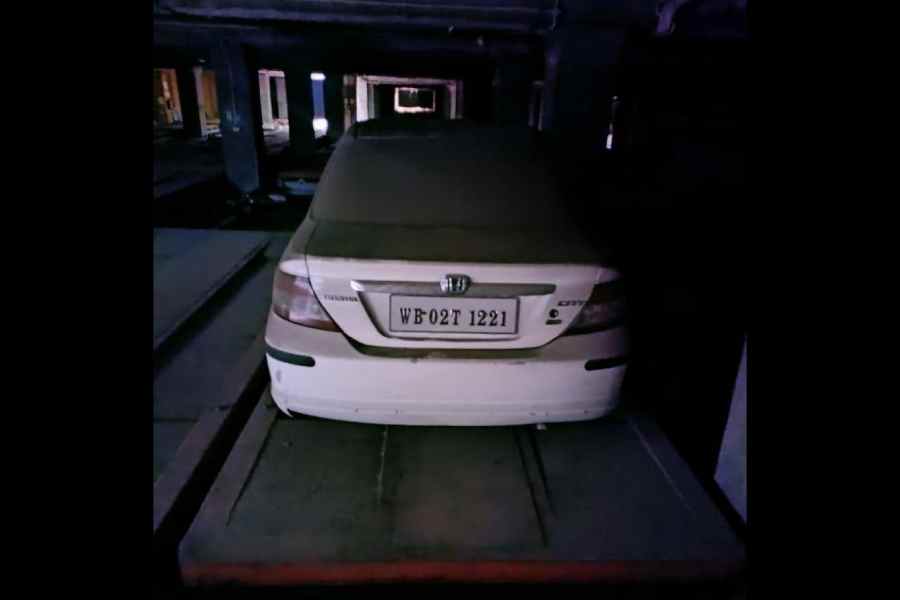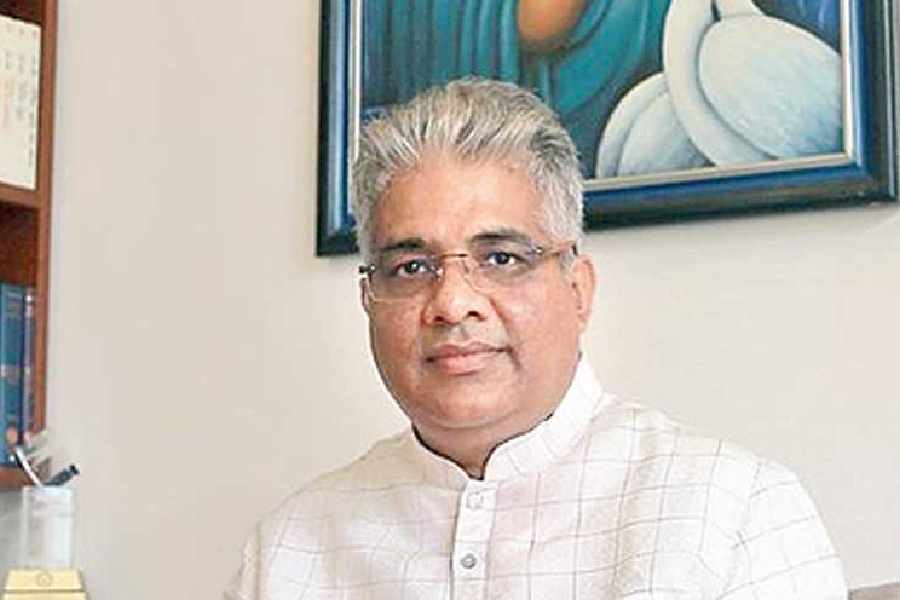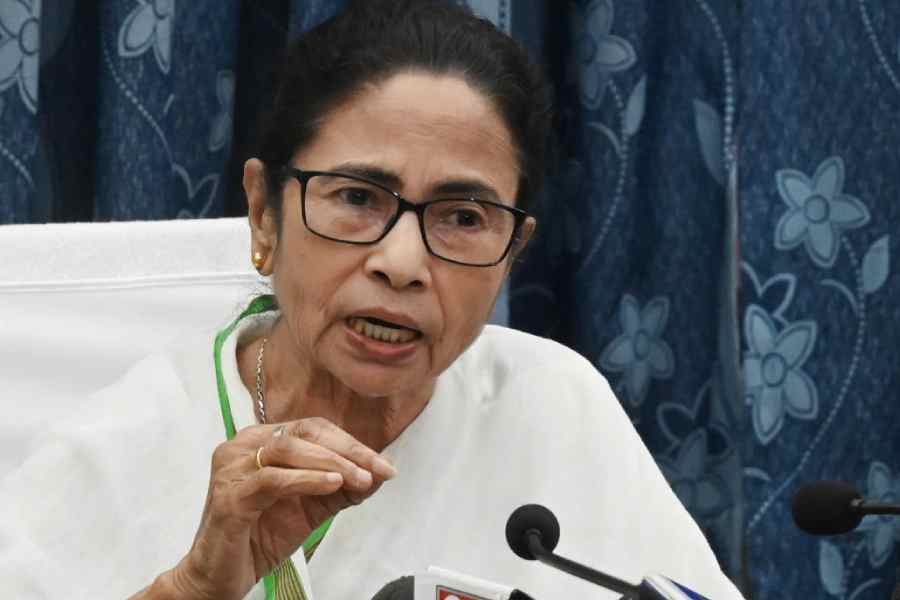Stalled wheels
Sir — The wheels of justice turn slowly in India. Unfortunately for Alauddin Ahmed, a Calcutta-based businessman, they seem to have come to a halt (“A streetcar named detention”, Mar 13). A car belonging to him has been stationed in an underground parking facility for the last eight years after the structure was shut down by the Calcutta Municipal Corporation in 2016 for failing to comply with fire-safety norms. His efforts to extricate the car have been in vain and the vehicle, like the proverbial Tithonus, seems to have grown old in suspended animation. The incident is yet another reminder of the need to streamline official processes in India; many people do not have the luxury of waiting eight years for justice to be served.
Shibani Sikdar, Calcutta
Just a ruse
Sir — The government has, once again, brought the election campaign to a boil by notifying the rules of the Citizenship (Amendment) Act (“Centre unsheathes contentious CAA rules”, Mar 12). While it is true that people from neighbouring countries have illegally entered India in large numbers, religion should never be a criterion for citizenship. Muslims cannot be put in a separate category — which is what the CAA does unofficially. A Hindu immigrant from Pakistan, for example, should not be given preference. The cut-off date of December 2014 for granting citizenship is also arbitrary.
Amit Brahmo, Calcutta
Sir — The Centre has notified guidelines for the implementation of the CAA, paving the way for citizenship to be awarded to people of certain faiths facing persecution in countries like Pakistan, Bangladesh and Afghanistan. The chief minister of West Bengal, Mamata Banerjee, has justifiably termed this a political gimmick ahead of the Lok Sabha elections. Had the Centre been concerned about the plight of non-Muslim refugees from these countries, it would have put the rules in place long ago.
Moreover, the law has several shortcomings: for instance, it would be almost impossible for the government to differentiate between immigrants coming to India for financial opportunities and those forced to migrate owing to religious persecution. The implementation of the CAA may also affect our diplomatic relations with neighbours like Bangladesh.
Debaprasad Bhattacharya, Calcutta
Sir — It has taken the Centre more than four years to implement the CAA after the bill was passed in 2019. The main intent of the Bharatiya Janata Party at the Centre seems to be to polarise the electorate (“Poll sword”, Mar 13). This is evident from the fact that the government announced the implementation of the CAA on a day that its reputation suffered a setback following the Supreme Court’s order to the State Bank of India to publish the details of the electoral bonds. Many Opposition leaders have termed the CAA discriminatory. It is unfortunate that persecuted Muslim sects like the Ahmadiyyas remain excluded from the ambit of the CAA. Setting a religious condition for citizenship is unconstitutional.
Zakir Hussain, Kazipet, Telangana
Sir — The rules for the implementation of the CAA have been announced at last. One explanation for the delay is the widespread opposition to the law back in 2019. Such protests arose owing to malicious propaganda which claimed that the CAA would deprive Indian Muslims of their citizenship. It cannot be denied that Hindus, Sikhs and other non-Muslims face persecution in Afghanistan and Pakistan. It is imperative that these people be given immediate help and the CAA does just that. Strict action should be taken against those who spread misinformation about this law.
Abhijit Roy, Jamshedpur
Sir — The Narendra Modi government seems to have acted quickly to shift the focus from electoral bonds to the CAA. There is no denying that the CAA has been implemented to gain support from the Hindutva vote bank. But the law has faced opposition even in BJP-ruled states like Assam where people have voiced concern about the influx of non-Assamese people. The chief ministers of states like West Bengal and Kerala have even announced their intention to oppose the implementation of the law. This might cause irreparable damage to India’s federal structure. The Centre’s obstinacy in going ahead with the National Register of Citizens exercise could backfire as it did in Assam where lakhs of Hindus were excluded from the final list.
S.K. Choudhury, Bengaluru
Sir — The BJP government has rolled out the CAA just before the parliamentary elections simply to capture the lion’s share of the non-Muslim vote. However, in West Bengal, this might indirectly benefit the Trinamul Congress. The Congress and the Left may further cut into the anti-TMC voteshare and lead to the dwindling of the BJP’s
fortunes in Bengal.
Hemanta Sasmal, Howrah
Tough battle
Sir — By announcing candidates for all 42 Lok Sabha seats in West Bengal, Mamata Banerjee has dispelled any hope of an anti-Bharatiya Janata Party alliance in the state (“INDIA buried in Bengal”, Mar 11). The Trinamul Congress’s action has exposed INDIA’s lack of cohesion. The BJP must surely be enjoying this internal scramble among the members of the INDIA bloc.
Aranya Sanyal, Siliguri
Sir — The mammoth rally recently organised by the TMC in Calcutta saw thousands of attendees from across the state. The primary poll plank discussed at the rally was the denial of Bengal’s rightful dues by the Centre. The massive attendance at the rally has bolstered Mamata Banerjee’s public image. But her decision to go solo might indirectly benefit the BJP.
Jayanta Datta, Hooghly











